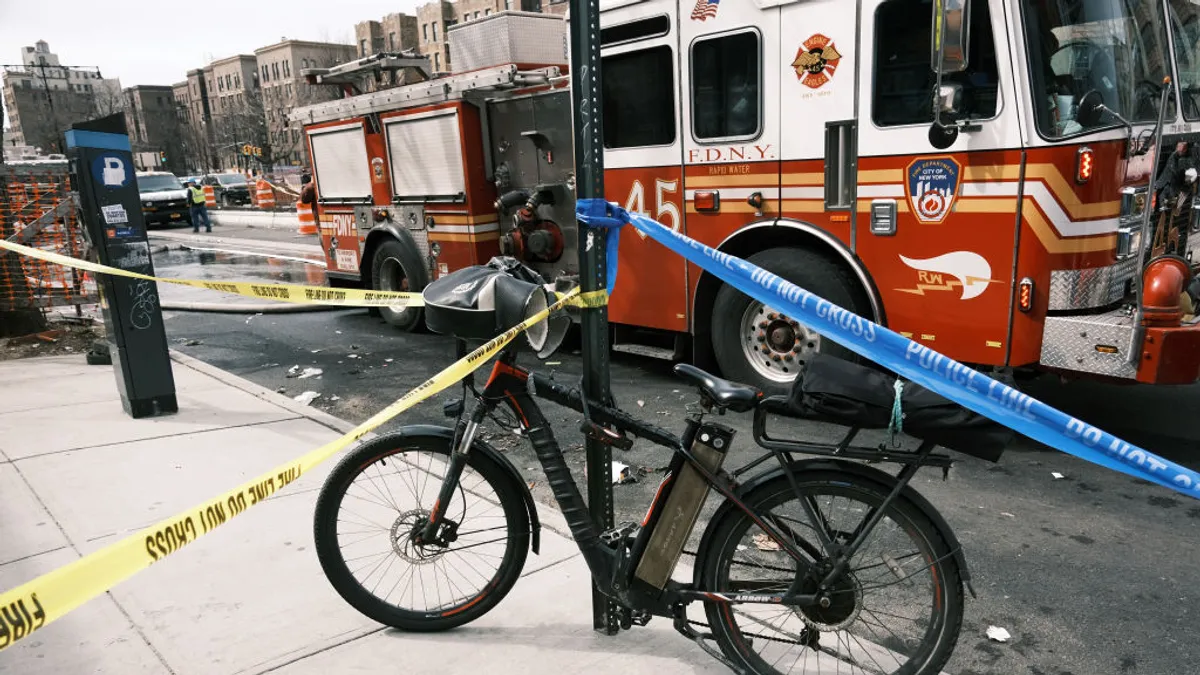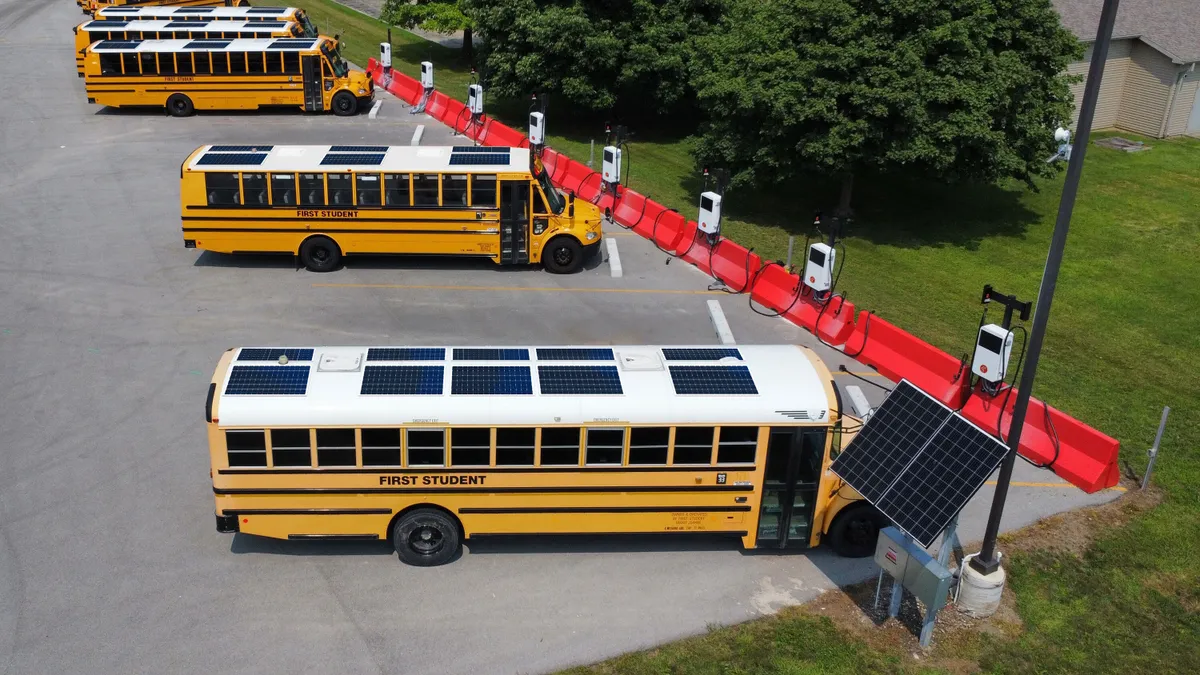Michael Mezzacappa, a partner and general counsel with New York-based Coffey Modica, represents insurers, property owners, managing agents and other professionals. Opinions are the author’s own.
Deadly fires caused by faulty lithium-ion batteries in electric bikes and scooters keep wreaking havoc across the U.S.
In January, an e-bike battery fire destroyed a family’s home in Santa Cruz, California. Last year, an e-bike fire forced the evacuation of an entire apartment building in St. Paul, Minnesota. An e-scooter did the same thing to an apartment complex in Portland, Oregon.

These are not normal fires. The batteries do not smolder, they explode, fed by a process called thermal runaway that makes the fires spread faster than in a typical blaze.
Worse, these batteries can combust without much notice and start fires even if not charging.
The epicenter of this problem is New York City, where the expansion of delivery services post-pandemic created a huge market for cheap, unregulated lithium batteries that could keep those e-bikes humming at all hours.
In New York City alone, there were 268 e-bike and e-mobility device battery fires in 2023, a disturbing increase from the 44 that transpired in 2020. FDNY recently reported six deaths related to lithium-ion battery fires in 2024, down from 18 in 2023.
To their credit, the New York City Fire Department and local officials have stepped up on this issue. They have constructed new outdoor battery charging stations, banned the sale of uncertified e-mobility devices, increased inspections of bike shops and expanded a public education campaign about how to properly charge, swap and dispose of these batteries.
The scourge of e-bike battery fires across the country will not be extinguished without action on the federal level, but federal legislation has yet to gain traction. And there is still no national standard for identifying and logging fires caused by e-bikes, since the fast-moving nature of these fires makes it difficult for fire departments to determine the cause. This is also why national statistics on lithium battery fires are hard to compile.
Firefighters took a step in the right direction on Oct. 29, 2024, when FDNY officials hosted the U.S. Department of Homeland Security and representatives from fire services across the country for a two-day symposium on lithium battery fires. Firefighters from Seattle, Denver, Chicago and Atlanta attended the event to share their experiences. Crucially, they discussed the creation of a nationwide checklist by which e-bike and scooter battery fires could be better identified and cataloged.
A national system for data reporting should also document the batteries found in these fires. Over time, they may find that many of the offending batteries come from the same manufacturer or region, allowing regulators to more precisely target safeguards.
Still, we will not achieve a handle on the flow of unregulated batteries until the federal government acts on this issue.
Rep. Ritchie Torres of New York introduced legislation mandating federal safety standards for lithium-ion batteries in March 2023. The bill was initially included in a December 2024 budget bill, but it didn’t make it into the final version.
The bill, dubbed the Setting Consumer Standards for Lithium-Ion Batteries Act, would require the government to establish a consumer product safety standard for these batteries.
While that would be a good start, it is not enough. We cannot keep letting uncertified batteries into this country. They are readily available because no one wants to pay for legitimate batteries when they can find cheaper ones online.
Unknown entities overseas are all too eager to take advantage of this market demand and manufacture cheaply made batteries that are not necessarily compatible with whatever charger the user has on hand. Far too many fires in New York City have broken out because of this mismatch between batteries and charging devices.
Until these faulty batteries are stopped from coming into the country in the first place — not to mention the countless ones already here and in daily use — the fires will not stop.
In addition, cities around the country should copy New York’s new municipal trade-in pilot program for unsafe e-bikes and their batteries. City officials say the rules will allow delivery workers to exchange their unsafe devices with UL-certified e-bikes and compatible batteries.
Beyond New York, perhaps a federal trade-in initiative can offer tax breaks associated with returning old batteries. Governments could work with stores and manufacturers to create rebates and other incentives for the trade-ins. Those stores would then have to abide by official protocols for disposing of the old batteries.
In fact, too many people simply toss their old batteries in the trash without a second thought. Combustible lithium-ion batteries have caused numerous fires at waste and recycling facilities, which is why it’s important to send them to specialized battery recyclers.
Finally, public education is critical. Public service bulletins about e-bike fires — finally a regular occurrence on New York radio, thanks to the FDNY — should be spread far and wide. Children and others should be taught what to do in a fire.
New York City has shown that while there may be no silver bullet to end e-bike fires for good, the destruction can be reduced with cooperation between firefighters and local policymakers. Greater urgency to follow this model on a national scale would go a long way toward cutting this problem off at the source.



















